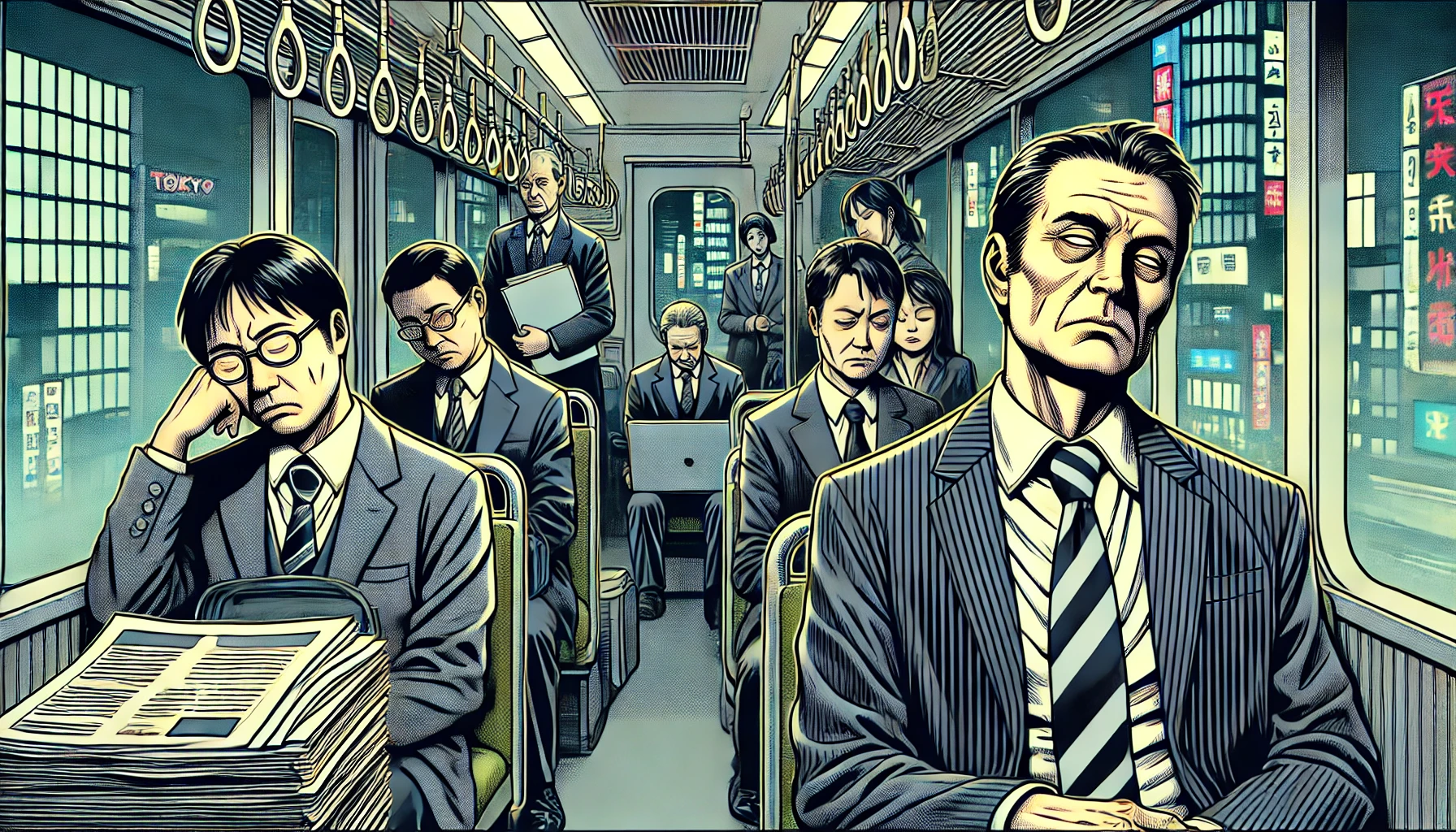
Japan’s so‑called “Ice-Age Generation”—those born roughly between 1970 and 1984—is experiencing a level of social and emotional exhaustion rarely seen in modern societies. Often overlooked, they are the first generation to face economic collapse at nearly every critical life stage. Their trajectory has become a cautionary tale of missed opportunities and systemic neglect 🔄.
1️⃣ Teen Years: Life Was a Test
During their teenage years, many were caught in the brutal wave of Japan’s hyper-competitive entrance exam system. Backed by the promise of a stable job and a middle-class life, families poured resources into education. But just as this generation reached adulthood, the bubble economy burst—and the rules changed overnight.
2️⃣ Twenties: The Bubble Bursts, Doors Slam Shut
As they graduated in the 1990s and early 2000s, Japan entered a prolonged economic downturn. Companies froze hiring. Stable, full-time positions were few and far between. Many were forced into irregular, part-time, or contract work—never given a chance to build the traditional career ladder.
This left them financially vulnerable, socially isolated, and emotionally defeated during a stage of life when most people form lifelong relationships and families.
3️⃣ Thirties: Recession After Recession
While many hoped to rebuild in their thirties, another series of obstacles hit: deflation, the Lehman shock, and growing job polarization. Even those lucky enough to find full-time work often faced stagnant wages, unclear promotion paths, and rising living costs.
It was also a time when many peers around the world were starting families. But in Japan, low income and job insecurity meant many in this generation postponed or gave up on marriage and children altogether.
4️⃣ Forties: Squeezed Between Generations
Now middle-aged, the Ice-Age Generation is stuck between younger staff with new ideas and older bosses clinging to outdated systems. They are often the ones who must manage the stress from both sides—training newcomers while satisfying conservative leadership.
Workplaces expect them to lead without having ever been fully empowered. The pressure is immense, and recognition is rare.
5️⃣ Fifties: The Care Burden and Loneliness
For those now in their fifties, a new problem emerges: aging parents. Many are expected to provide full-time care while still working. But they lack savings, retirement plans, and often, family of their own.
Since many never married or had children due to earlier life struggles, they now face the possibility of growing old alone—both physically and emotionally.
📉 The Societal Fallout
- Declining birth rate: Many in this generation did not have children, accelerating Japan’s demographic crisis.
- Suicide and mental health: Economic despair and social pressure have contributed to high suicide rates, particularly among unemployed men in this group.
- Political invisibility: Policy attention often focuses on the elderly or youth, not the middle-aged. This generation remains largely ignored in political discourse despite its size and need.
🧠 A Generation Shaped by Struggle
The Ice-Age Generation is often described as cautious, pessimistic, and risk-averse—but that’s only half the story. Their resilience, built through years of adversity, is unmatched. They’ve adapted to crises, re-learned skills, and kept working despite unstable conditions.
Yet society still judges them harshly. They are frequently compared unfavorably to both the stable Baby Boomers and the more optimistic Millennials and Gen Z.
🛠️ What Must Change?
- Career rebuilding programs: Specialized re-skilling and re-entry initiatives targeted at mid-life professionals.
- Mental health access: Focused outreach for anxiety, depression, and work-related burnout.
- Support for elder care: Financial aid, remote work options, and respite care services.
- Political voice: Recognition in policy-making, including economic and social programs tailored for their needs.
🌱 A Note of Hope
Despite the despair, this generation could still become one of Japan’s greatest assets. Their hard-earned life experience makes them uniquely capable of bridging the values of the past and the needs of the future.
With proper support, they can become mentors, policy shapers, and advocates for a more inclusive Japan.
✍️ Final Thoughts
Japan’s Ice-Age Generation has endured more than most—educational stress, economic collapse, social isolation, and political neglect. But their story is not over. With recognition, empathy, and action, they could become the backbone of a more resilient society.
Let’s not leave them behind.



















































